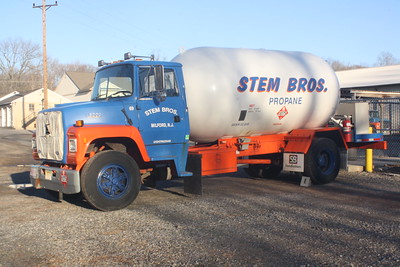
Propane is a type of gas commonly used for heating homes, cooking, and even fueling vehicles. Normally, propane doesn’t have any smell at all.
However, a special odor, often described as a rotten egg or skunk-like smell, is added to propane so that leaks can be easily detected. But what if your propane starts to smell like kerosene instead? This unusual smell can be puzzling and might leave you wondering if something’s wrong.
In this article, we’ll explore why propane might have a kerosene-like odor and what it means for your safety.
Possible Reasons for a Kerosene-Like Smell
Old or Contaminated Propane:
Propane is a stable gas, but if it’s stored for a long time, especially in older or less secure tanks, it can start to break down. This breakdown can alter the chemical balance of the propane, causing it to emit a different smell than usual. Additionally, prolonged storage might allow the gas to pick up other odors from the environment or the tank itself, leading to a kerosene-like scent. This is more likely to happen if the propane has been sitting unused for months or even years.
Contaminants in the Tank:
Propane tanks aren’t always perfectly clean. Over time, residues like rust, oil, or other debris can accumulate inside the tank. These contaminants can mix with the propane when the tank is filled or when the gas is being used. As a result, the propane can pick up different smells, including that of kerosene. For example, if there’s leftover fuel or oil from a previous fill-up, it might mix with the new propane and create an unusual odor. Even something as simple as moisture inside the tank can lead to changes in how the propane smells.
Equipment Issues:
When propane burns, it should do so cleanly and efficiently, producing little to no odor. However, if your burner, stove, or other propane-powered equipment isn’t functioning properly, it can cause incomplete combustion. This means the propane isn’t burning as it should, which can lead to strange smells, including one that resembles kerosene. Equipment issues like clogged burners, malfunctioning valves, or dirty components can all contribute to this problem. These issues not only affect the smell but can also impact the performance and safety of your propane appliances.
Read Also: Propane Is Used as Refrigerant: 6 Common Reasons Why
Is It Dangerous?
The Smell Itself May Not Be Harmful:
A kerosene-like smell from your propane isn’t automatically dangerous, but it’s important to pay attention to it. The smell alone won’t hurt you, but it could be a sign that something’s wrong. For example, it might mean that your propane is old, contaminated, or that your equipment isn’t working right. Even if you don’t notice any immediate danger, it’s always better to be cautious. Remember, propane gas is highly flammable, and any strange odor could be a warning sign.
Check for Leaks:
If you notice a kerosene-like smell, the first thing to do is check for leaks. Leaks are a serious issue with propane, as even a small one could lead to dangerous situations. A simple way to check is to apply soapy water to the connections and see if bubbles form, indicating a leak. If you detect a leak, turn off the propane supply immediately and ventilate the area. Propane leaks can cause explosions or fires, so don’t take any chances. Always keep in mind that propane has a lower explosive limit (LEL) of 2.1%, which means it only takes a small concentration of propane in the air to become explosive.
Consult a Professional:
If you can’t find the source of the smell or if you’re unsure of what’s causing it, it’s best to call a professional. A certified technician can inspect your propane system and equipment to identify any issues. They’ll have the tools and expertise to safely check for problems and make necessary repairs. Professionals can also test the gas for contaminants or check the equipment’s performance. It’s worth noting that a professional inspection might cost anywhere from $100 to $200, but it’s a small price to pay for safety and peace of mind.
While a kerosene-like smell might not be dangerous on its own, it could signal a potential problem with your propane system. Checking for leaks and consulting a professional are important steps to ensure your safety.
Read Also: What Time of Year Is Propane the Cheapest? (Summer or Fall)
Household Appliances That May Run Into Such Issue
1. Propane Heaters:
Propane heaters are often used to warm up rooms, garages, or outdoor spaces. If the burner inside the heater isn’t functioning properly, it can cause incomplete combustion, which means the propane isn’t burning as efficiently as it should. This can lead to unusual odors, including a kerosene-like smell. Additionally, if the heater has accumulated dust or debris, this can also contribute to the smell when the heater is turned on.
2. Gas Stoves and Ovens:
Gas stoves and ovens rely on propane to create heat for cooking. If the burners aren’t adjusted correctly or are clogged with food debris, the propane may not burn completely, resulting in a strange smell. This incomplete combustion can produce a kerosene-like odor instead of the usual clean-burning propane smell. Also, if there’s a problem with the air-to-fuel ratio, it can affect the combustion process and cause unusual odors.
3. Propane Water Heaters:
Propane water heaters heat the water in your home. If there’s an issue with the combustion chamber or the burner, it can lead to improper burning of the propane. This can create a kerosene-like smell. Additionally, older water heaters may have buildup inside that affects the way propane is burned, leading to a change in odor. Proper ventilation is also crucial for water heaters, and if there’s a ventilation issue, it can contribute to unusual smells.
4. Propane Fireplaces:
Propane fireplaces provide warmth and ambiance. However, if the propane isn’t burning properly due to a malfunction in the burner or the pilot light, it can create an unusual smell, including one that resembles kerosene. Additionally, if there’s an issue with the venting system or if the fireplace hasn’t been cleaned in a while, it can lead to smells being trapped and released into the room.
5. Propane Clothes Dryers:
Propane-powered clothes dryers use heat generated from burning propane to dry clothes. If there’s a problem with the burner or if the dryer isn’t venting properly, it can cause the propane to burn inefficiently, resulting in a kerosene-like smell. This can also happen if there’s a buildup of lint or debris inside the dryer, which can affect the way the propane burns.
6. Propane Grills and Outdoor BBQs:
Propane grills and BBQs are common in outdoor cooking. If the burners are dirty or clogged, the propane may not burn as cleanly, which can lead to strange smells like kerosene. Additionally, issues with the propane regulator or hose can affect the flow of propane, causing it to burn improperly. Regular maintenance of your grill can help prevent these issues.
7. Propane Refrigerators:
Propane refrigerators, often used in RVs or off-grid homes, rely on a propane burner to keep things cool. If the burner isn’t working correctly or if there’s an issue with the ventilation system, it can lead to incomplete combustion of propane, resulting in a kerosene-like odor. These refrigerators require regular maintenance to ensure that the burner and ventilation system are working properly, especially in confined spaces like RVs.
In each of these cases, the key issue is often incomplete combustion, which means that the propane isn’t burning as efficiently as it should. This can happen due to equipment malfunction, improper ventilation, or buildup of debris. Addressing these problems through regular maintenance and inspections can help prevent strange smells and ensure your propane appliances are running safely and efficiently.
Read Also: Can a Gas Stove Be Converted to Propane? (Conversion Kit You Need)
What to Do If You Notice a Kerosene-Like Smell
Immediate Steps:
The first thing you should do if you smell something like kerosene around your propane is to ventilate the area. Open windows and doors to let fresh air in and the smell out. It’s crucial to avoid using any open flames, like lighting a match or turning on a gas stove, as propane is highly flammable. Also, don’t use electrical appliances, such as turning on a light switch or plugging in devices, because even a small spark could ignite propane if there’s a leak. The goal is to make the area as safe as possible while you figure out what’s going on.
Check the Source:
Once the area is safe, try to find out where the smell is coming from. Start by inspecting your propane tank and the connections for any signs of leaks. A quick and easy way to do this is by using soapy water. Apply the soapy water to the connections, and if you see bubbles forming, that means there’s a leak. If you find a leak, turn off the propane supply at the tank immediately. Additionally, check your equipment, like burners or stoves, to see if they’re working properly. If something seems off, it could be causing the smell. Be thorough but cautious—don’t take any risks if you’re unsure.
When to Call a Professional:
If you can’t find the source of the smell or if the kerosene-like odor continues even after you’ve checked everything, it’s time to call a professional. A certified technician has the experience and tools to inspect your propane system and identify any problems. They can check for leaks, test the propane for contamination, and ensure your equipment is functioning correctly. It’s especially important to get professional help if you’re feeling uncertain or if the smell is strong and persistent. Your safety comes first, and a professional can provide the peace of mind that everything is in order.
To Make a Conclusion
If your propane smells like kerosene, it’s important not to ignore it. While the smell itself might not be dangerous, it could be a sign that something’s wrong with your propane, your equipment, or your tank.
Checking for leaks, cleaning your appliances, and getting a professional to inspect your system are all good steps to take. By staying alert and addressing the issue early, you can ensure your propane system stays safe and runs smoothly. Always remember, when in doubt, it’s better to be cautious and get help from a professional.

Mike is an experienced propane technician with over 15 years of professional experience in the field. He has dedicated his career to helping customers with their propane needs, from installation to maintenance and repair. Together with Jeremy, he co-founded this website to provide useful information and guidance to customers seeking reliable propane services.







